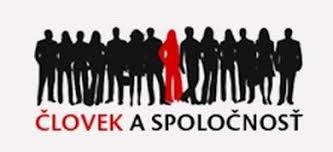Belief in a Just World and Coping with Injustice in Intimate Relationships
Belief in a Just World and Coping with Injustice in Intimate Relationships
Author(s): Denisa Rovenská, Lenka DaduľákováSubject(s): Psychology, Social psychology and group interaction, Personality Psychology, Evaluation research
Published by: Spoločenskovedný ústav SAV, Slovenská akadémia vied
Keywords: Justice; Belief in a just world; Coping with injustice in intimate relationships;
Summary/Abstract: Aim: According to the just world hypothesis, people want to and have to believe they live in a just world so that they can go about their daily lives with a sense of trust, hope, and confidence in their future (Lerner,1980). Justice can be seen as a key issue in intimate relationships. People want to be treated justly and consider justice to be one of the most important attributes of a good intimate relationship. Social justice research has shown that people respond with negative attitudes and behaviors when they perceive unjust treatment or situations. However, belief in a just world is associated with a positive coping style (Dalbert & Filke, 2007). The aim of this contribution is to examine the level of the belief in a just world (personal and general), find out which strategy is most used when people cope with injustice in intimate relationships, and analyze the relation between the belief in a just world and particular coping strategies. Method: 117 respondents (66 women and 51 men) with an average age of 21.60 years (SD = 1.54) answered the questions measuring coping strategies in the Coping with Injustice in Intimate Relationships Questionnaire (Dotazník zvládania nespravodlivosti v partnerskom vzťahu, Rovenská & Lovaš, 2017) and belief in a just world in the General Belief in a Just World Scale and Personal Belief in a Just World Scale (Dalbert, Montada, & Schmitt, 1987). The sample included heterosexual, childfree relationships. The average length of relationship was 28.00 months (SD = 19.88). Participation was voluntary, and all participants were treated in accordance with the ethical guidelines. Results: The results showed significant differences in belief in a just world (t(116) = 4.07; p < .001). Respondents had a stronger personal belief in a just world than general belief in a just world (M(GBJW) = 3.96; SD = .85), M(PBJW) = 3.08; SD = .84). Furthermore, cooperation was the most common strategy used to cope with injustice in romantic relationships (M = 4.61; SD = .85). There was no significant relationship between belief in a just world and coping with injustice. Conclusion: The paper dealt with the concept of belief in a just world and coping with injustice in intimate relationships. The paper defined the character of the belief in a just world and clarified that personal BJW is more significant for individuals than general BJW. The present paper also showed that cooperation was the most used coping strategy through dealing with injustice in intimate relationships.
Journal: Človek a spoločnosť
- Issue Year: 21/2018
- Issue No: 3
- Page Range: 39-49
- Page Count: 11
- Language: English

